1. Topic多分区

如图,是一个多分区Topic在Kafka集群中可能得分配情况。
P0-RL代表分区0,Leader副本。
这个Topic是3分区2副本的配置。分区尽量均匀分在不同的Broker上,分区的Follower副本尽量不和Leader在一个Broker上。
2. 理想的策略
假设有3个Topic在含有3个Broker的Kafka集群上。
Topic1有1个分区,2个副本。
Topic2有2个分区,2个副本。
Topic3有3个分区,2个副本。
可能如下图所示。不同颜色表示不同Topic。
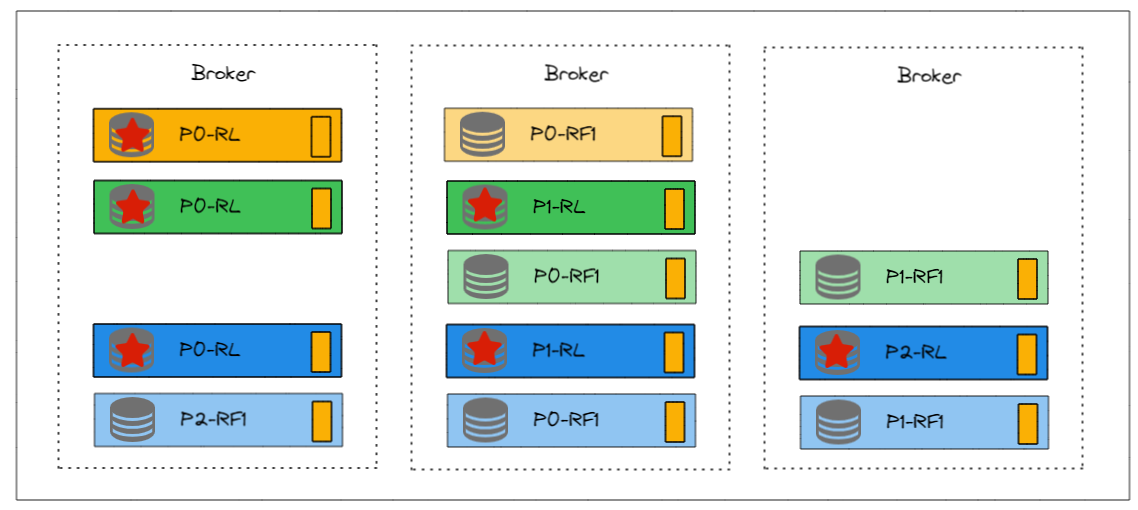
似乎不是特别理想,我们再调整一下,如下图
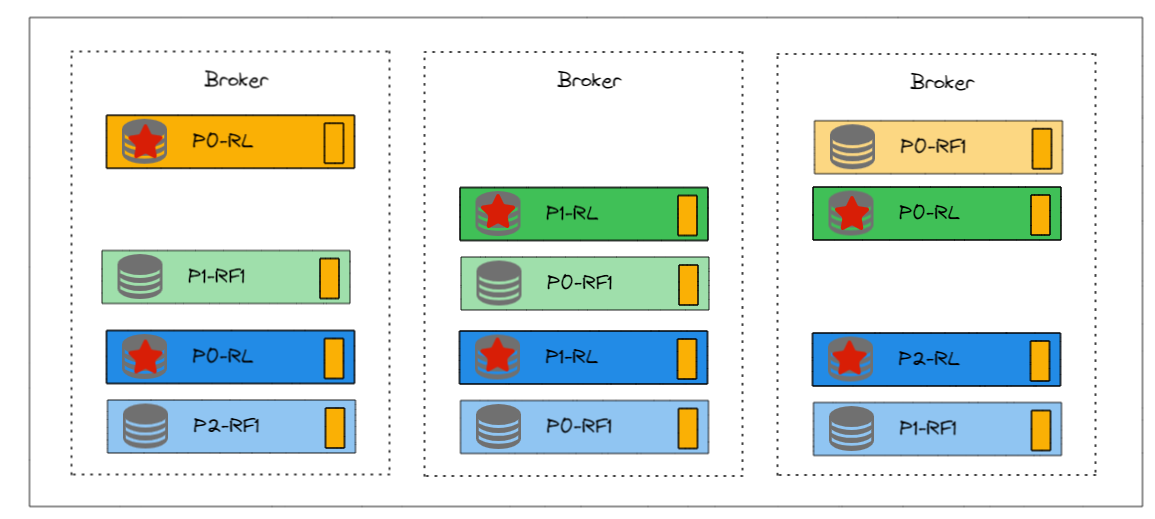
不仅每个Broker的副本数一样了,更关键的是,并且每个Broker的主Leader副本也一样的。这样更适合负载均衡。
3. 实际的策略
我们使用Kafka tool,来以此创建上述3个Topic。



首先看test1


然后看test2




然后是test3






按照上面的信息,画出来的分配结果如下图
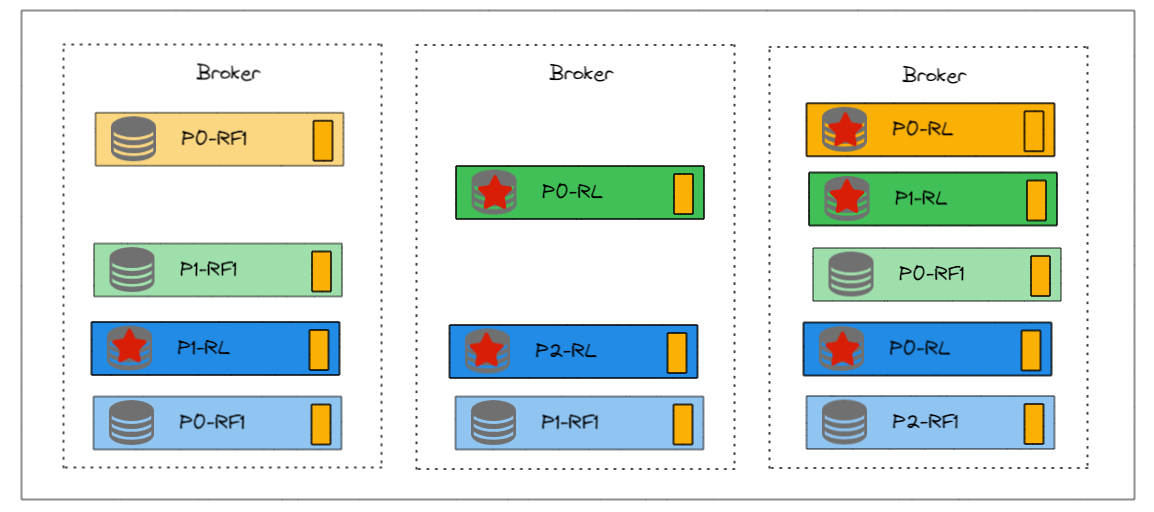
似乎并不和我们想的一样。
查看源码,Breadcrumbskafka/server-common/src/main/java/org/apache/kafka/admin/AdminUtils.java中一段代码
1
2
3
4
5
6
7
8
9
10
11
12
13
14
15
16
17
18
19
20
21
22
| private static Map<Integer, List<Integer>> assignReplicasToBrokersRackUnaware(int nPartitions,
int replicationFactor,
List<Integer> brokerList,
int fixedStartIndex,
int startPartitionId) {
Map<Integer, List<Integer>> ret = new HashMap<>();
int startIndex = fixedStartIndex >= 0 ? fixedStartIndex : RAND.nextInt(brokerList.size());
int currentPartitionId = Math.max(0, startPartitionId);
int nextReplicaShift = fixedStartIndex >= 0 ? fixedStartIndex : RAND.nextInt(brokerList.size());
for (int i = 0; i < nPartitions; i++) {
if (currentPartitionId > 0 && (currentPartitionId % brokerList.size() == 0))
nextReplicaShift += 1;
int firstReplicaIndex = (currentPartitionId + startIndex) % brokerList.size();
List<Integer> replicaBuffer = new ArrayList<>();
replicaBuffer.add(brokerList.get(firstReplicaIndex));
for (int j = 0; j < replicationFactor - 1; j++)
replicaBuffer.add(brokerList.get(replicaIndex(firstReplicaIndex, nextReplicaShift, j, brokerList.size())));
ret.put(currentPartitionId, replicaBuffer);
currentPartitionId += 1;
}
return ret;
}
|
例子(来自尚硅谷)
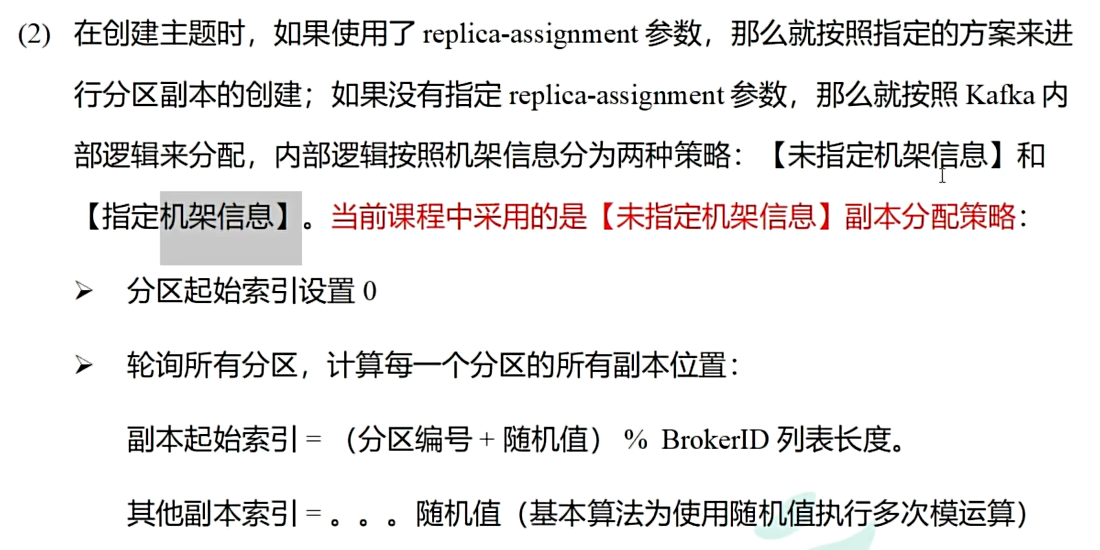
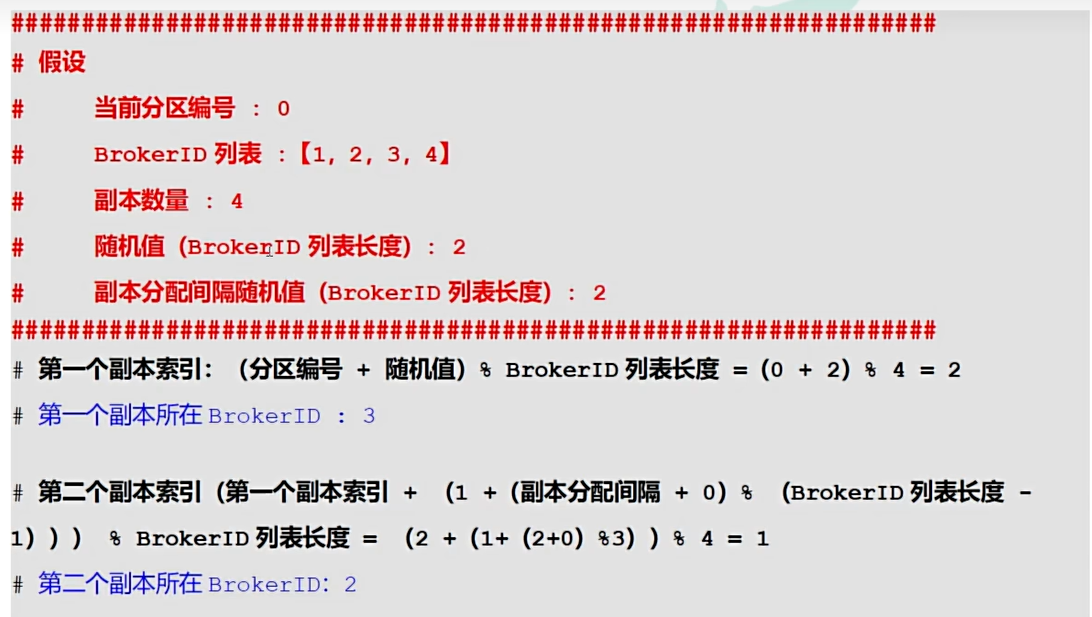
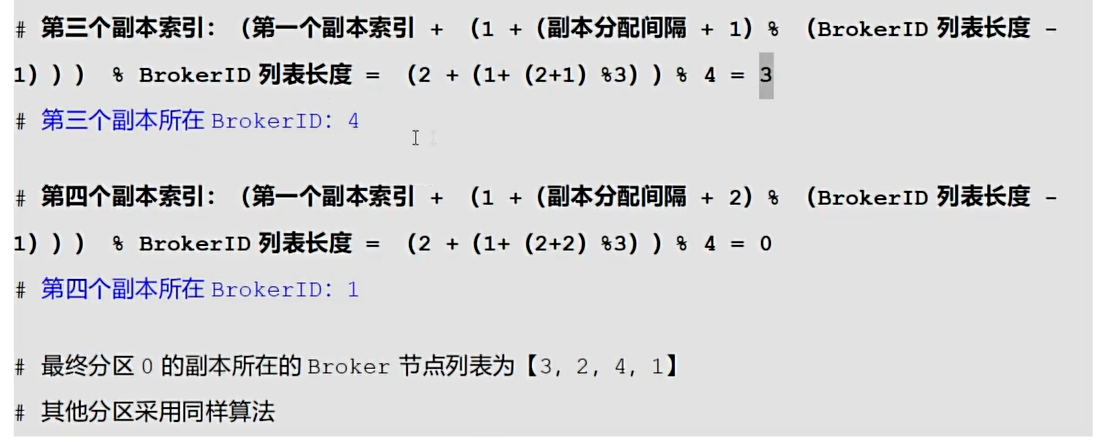
4. 如何自定义策略
1
2
3
4
5
6
7
8
9
10
11
12
13
14
15
16
17
18
19
20
21
22
23
24
25
26
27
28
| public class AdminTopicTest {
public static void main(String[] args) {
Map<String, Object> config = new HashMap<>();
config.put(AdminClientConfig.BOOTSTRAP_SERVERS_CONFIG, "localhost:19092");
Admin admin = Admin.create(config);
HashMap<Integer, List<Integer>> map = new HashMap<>();
map.put(0, Arrays.asList(3, 1));
map.put(1, Arrays.asList(2, 3));
map.put(2, Arrays.asList(1, 2));
NewTopic test4 = new NewTopic("test2", map);
CreateTopicsResult result = admin.createTopics(
Arrays.asList(
test4
)
);
admin.close();
}
}
|
不过在手动分配时,确实需要了解每个broker的负载情况,以便做出更优的分配策略。你可以使用Kafka的AdminClient类来获取集群的状态信息


























